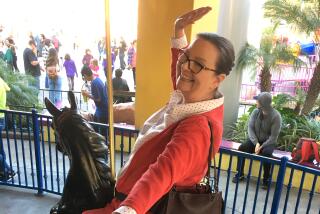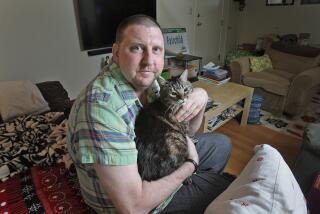Before it’s too late, caregivers should know
- Share via
Frank discussions between caregivers and ill or dying patients not only can ease the patients’ fear of becoming a burden, but can prevent eventual feelings of guilt in their loved ones.
Yet increasingly, caregivers must make irrevocable, life-altering decisions on loved ones’ behalf -- without knowing what they would have wanted.
These decisions often focus on technical questions about whether to use respirators, attempt resuscitation or try medical heroics when what really matters is the resulting “quality of life,” said Dr. Terri R. Fried, an associate professor of medicine and geriatrics at Yale University School of Medicine in New Haven, Conn.
As it turns out, that phrase can mean different things to caregivers and patients, even when they think they understand each other very well.
A new survey of older patients and their caregivers found a gap between what each group considers an acceptable quality of life after those treatments. It found that both generally agreed that minor pain or mild memory loss would be tolerable and a coma intolerable. But they frequently disagreed about treatments that could leave the patient in severe pain, confined to a bed or unable to recognize loved ones. Caregivers were more likely to say that serious physical limitations or severe memory loss would be acceptable aftereffects.
Unfortunately, when caregivers ultimately are called upon to make such decisions, there’s usually no way to know whether they’re honoring or violating the patient’s desires.
“When this happens, the person is not able to speak for himself or herself,” Fried said. “It’s not like the patient really knows that something has happened that’s against what he or she would have wanted to happen.”
It’s a problem likely to grow as sophisticated medical care keeps patients alive longer.
The survey, published in the current issue of the Archives of Internal Medicine, found that caregivers, most often spouses, children or other relatives, frequently were unaware of circumstances in which the patient would prefer to die rather than receive treatment. In many cases, patients expressed fear that life-prolonging measures might make them a burden to their children. And yet, researchers found, sometimes the care-giving sons or daughters were more than willing to accept a parent’s increased dependence upon them.
The findings were based on interviews with 193 patients over 60, who were living at home with advanced cancer, congestive heart failure or chronic obstructive pulmonary disease. Researchers also surveyed each patient’s caregiver about what he or she thought best for the patient in various scenarios.
“If a caregiver knew that a patient said, ‘I would never want to end up dependent on you to get me out of bed, or unable to recognize my family,’ then that would be a clear guide to caregivers when it came time to make decisions,” Fried said.
Dr. Steven Z. Pantilat, an end-of-life specialist at UC San Francisco, says doctors can also encourage patients to share their wishes. “The way I bring it up is I say, ‘If you were to get so sick you couldn’t talk to me directly, who should I talk to, to help me make decisions about your care?’ ”
Such an approach encourages the patient to appoint a surrogate decision-maker and to create a living will or advance directive that explicitly states preferences about end-of-life care.
Eileen Carey, 56, of Pacifica, Calif., and her four siblings just went through these decisions a few months ago. But their 86-year-old mother, who was blind, beginning to suffer from dementia and dependent on a wheelchair, had outlined her medical wishes in a living will and a do-not-resuscitate directive.
So in late March, when she was hospitalized at UC San Francisco with a massive infection, the family had some indications how to proceed. “It was a combination of having had some conversations with Mom, sitting down with the doctor’s guidance, and the documents that gave us a sense of security that we were all moving in a direction to fulfill Mom’s desires,” Carey said.
Within a few days, seeing that she had no hope of recovery, they moved their mother to a palliative care floor, where she died peacefully several days later.
Caregivers feel burdened, Pantilat said, when patients haven’t conveyed their wishes. But Carey’s mother gave them the tools to make decisions. “Instead of burdening people with knowledge, giving them the knowledge is actually a way to unburden them.”






